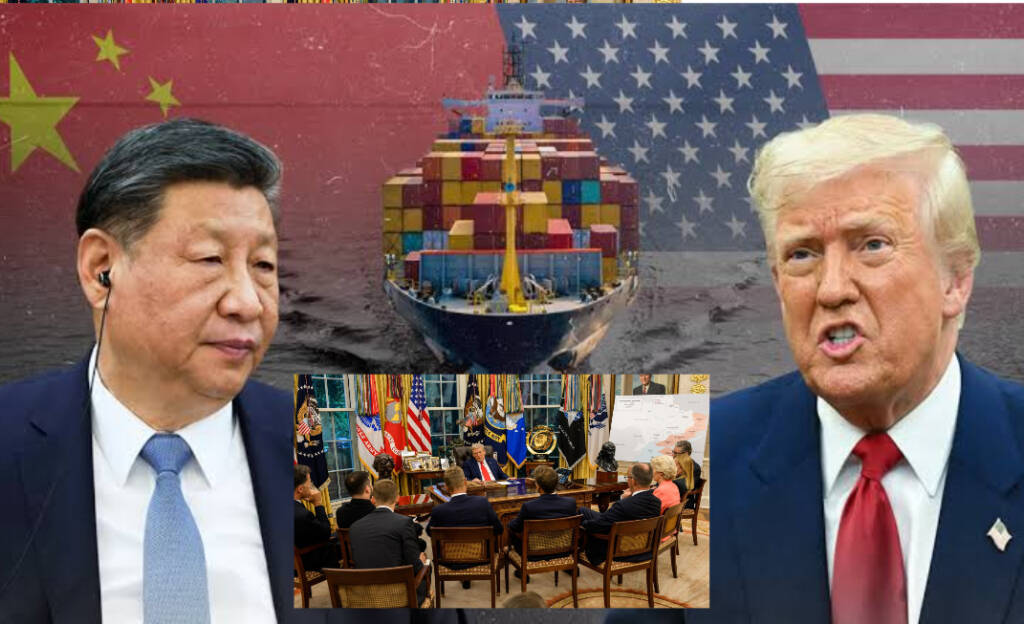U.S. President Donald Trump made some bold claims this week from the Oval Office, stoking controversy rocking the US international relations. In back-to-back statements, Trump has escalated rhetoric against China and boasted about how European leaders perceive his influence.
Speaking during a joint appearance with South Korean President Lee Jae Myung, Trump declared that the United States holds “incredible cards” that could “destroy China,” but said he is choosing not to act on them—for now.
“If I play those cards, that would destroy China. I am not going to play those cards,” Trump said, referring to potential economic tools and trade penalties.
Trump specifically pointed to the possibility of a 200% tariff on rare earth magnets—critical components in global electronics and defense systems—if relations with China continue to sour. While he stopped short of announcing formal action, the threat was clear: Beijing could face severe consequences under a second Trump administration.
Trump then went on to announce that United States will permit the entry of 6,00,000 students from China, underscoring what he described as a “different” and improved relationship with Chinese premiere Xi Jinping under his administration.
“I hear so many stories about we’re not going to allow their students. We’re going to allow their students to come in. We’re going to allow it. It’s very important. 6,00,000 students. It’s very important,” he said.
Further, Xi Mingze, the only daughter of Chinese President Xi Jinping and First Lady Peng Liyuan, may have returned to the United States to resume studies at Harvard University, as was reported in June this year.
Trump: “They Call Me the President of Europe”
In a another widely circulated remark, Trump has claimed that European leaders have referred to him as the “President of Europe.”
“They call me the president of Europe,” Trump said, without naming specific individuals or providing evidence. The comment, made during a public appearance, was framed as part boast, part anecdote.
The claim has raised eyebrows across European diplomatic circles. While it’s unclear whether any EU leaders actually used the term seriously or in jest, the statement aligns with Trump’s trademark style of amplifying perceived influence and admiration.
Critics argue that Trump’s rhetoric risks further inflaming global tensions—particularly with China—and paints a distorted picture of diplomatic relationships. Others view it as political theater designed to project strength ahead of the 2024 U.S. presidential election, where Trump remains the Republican frontrunner.
Meanwhile, European responses have been muted. No EU official has publicly confirmed or denied the “president of Europe” comment, but several diplomats reportedly view the claim as hyperbolic and unrepresentative of official sentiment.
Trump’s recent remarks—threatening economic destruction for China and boasting of honorary European leadership—underscore his continued use of dramatic language to project power. Whether this political strategy will help or backfire only time will tell. For now Trump seems to be walking a tightrope with his statements, that can spark a big fallout. His constant harsh rhetoric has already alienated a lot of Latin amaerica, Canada, Mexico, Greenland, and even India, while his harsh admonishment of South africa and now even of South Korea will leave many US allies unsure of where they actually stand with the current administration.
